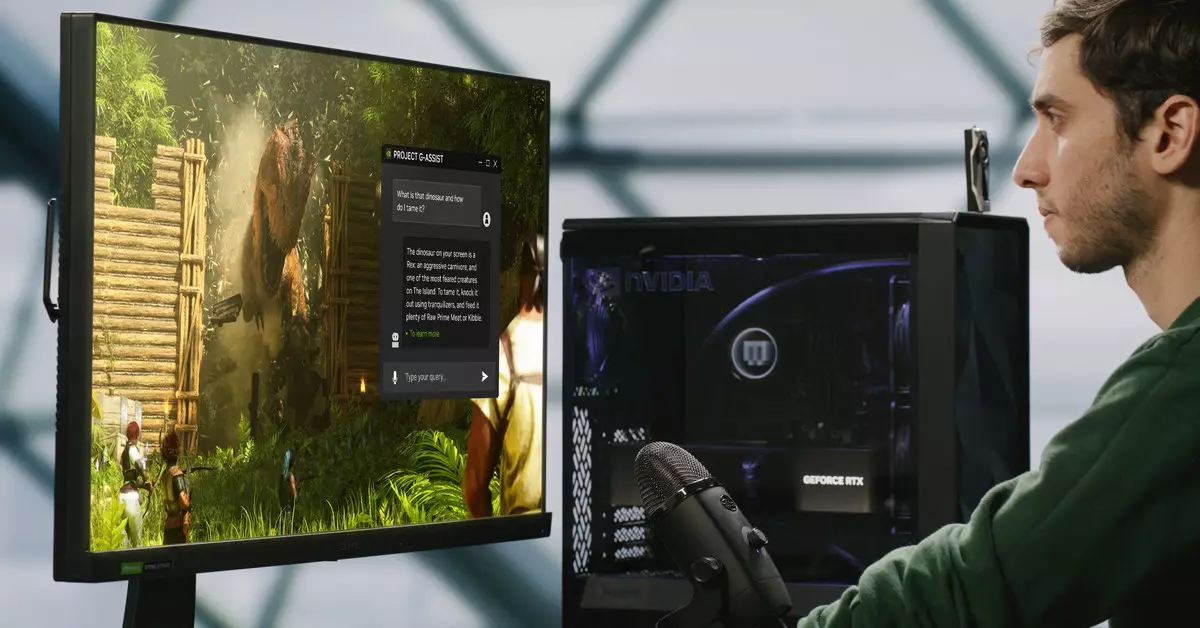In the world of gaming, advancements in technology are constantly pushing the boundaries of what is possible. Nvidia, a major player in the graphics processing industry, recently showcased their latest project – G-Assist. Originally introduced as an April Fools’ joke in 2017, G-Assist has now evolved into a powerful AI assistant designed to enhance the gaming experience for RTX GPU owners and developers alike.
Unlike its initial conception as a mere prank, G-Assist has now emerged as a sophisticated tool that can provide real-time assistance to players. Through voice commands, users can interact with the AI assistant to gather information about in-game elements and receive guidance on how to progress further. This level of interactivity demonstrates the potential for AI to not only aid players in their gaming journey but also optimize the gaming experience based on individual preferences.
One of the key features of G-Assist is its ability to analyze gameplay and make informed decisions to enhance performance. By adjusting PC settings, such as latency and frames per second, the AI assistant can ensure that players are getting the most out of their gaming experience. Additionally, G-Assist can provide recommendations on how to improve performance, reach specific framerate targets, or even overclock the GPU for optimal results.
While the concept of AI assistants in gaming is still in its early stages, the potential for growth and development is immense. Companies like Microsoft have also shown interest in integrating AI into gaming experiences, further solidifying the idea that AI guidance in games may soon become a reality. However, it is important to approach these advancements with caution, as the reliability of generative AI technology remains a point of concern.
Despite the promising demonstrations and potential benefits of AI assistants like G-Assist, it is essential to maintain a critical eye on its future implementation. As technology continues to evolve, the role of AI in gaming is likely to expand, offering new possibilities for players and developers alike. Only time will tell how AI assistants will shape the future of gaming, but for now, the journey towards intelligent gaming experiences is well underway.


Leave a Reply